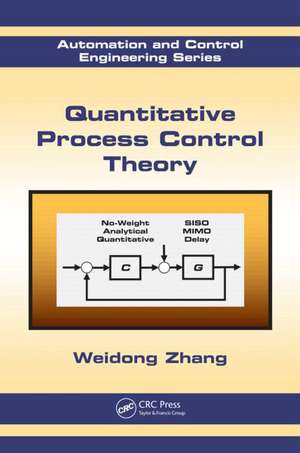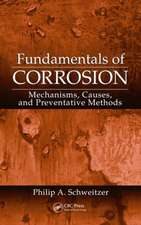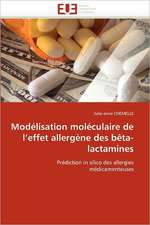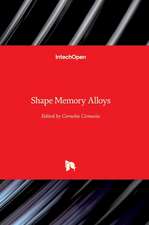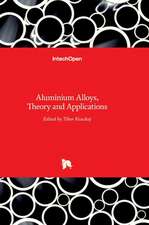Quantitative Process Control Theory: Automation and Control Engineering
Autor Weidong Zhangen Limba Engleză Hardback – 2 dec 2011
In each chapter, a summary highlights the main problems and results and exercises improve and test your understanding of the material. Mathematical proofs are provided for almost all the results while examples are based on actual situations in industrial plants involving a paper-making machine, heat exchanger, hot strip mill, maglev, nuclear reactor, distillation column/heavy oil fractionator, jacket-cooled reactor, missile, helicopter/plane, and anesthesia.
Developed from the author’s many years of research, this book takes a unique, practical approach for efficiently solving single-input and single-output (SISO) and multiple-input and multiple-output (MIMO) control system design issues for quantitative performance indices. With much of the material classroom-tested, the text is suitable for advanced undergraduate and graduate students in engineering, beginning researchers in robust control, and more seasoned engineers wanting to learn new design techniques.
| Toate formatele și edițiile | Preț | Express |
|---|---|---|
| Paperback (1) | 451.75 lei 43-57 zile | |
| CRC Press – 29 mar 2017 | 451.75 lei 43-57 zile | |
| Hardback (1) | 1096.75 lei 43-57 zile | |
| CRC Press – 2 dec 2011 | 1096.75 lei 43-57 zile |
Din seria Automation and Control Engineering
- 9%
 Preț: 593.60 lei
Preț: 593.60 lei - 15%
 Preț: 405.94 lei
Preț: 405.94 lei -
 Preț: 317.46 lei
Preț: 317.46 lei -
 Preț: 386.01 lei
Preț: 386.01 lei - 18%
 Preț: 1122.72 lei
Preț: 1122.72 lei - 18%
 Preț: 1303.48 lei
Preț: 1303.48 lei - 15%
 Preț: 531.25 lei
Preț: 531.25 lei -
 Preț: 414.10 lei
Preț: 414.10 lei - 20%
 Preț: 719.06 lei
Preț: 719.06 lei - 31%
 Preț: 432.83 lei
Preț: 432.83 lei - 18%
 Preț: 1312.44 lei
Preț: 1312.44 lei - 26%
 Preț: 874.20 lei
Preț: 874.20 lei - 18%
 Preț: 1297.76 lei
Preț: 1297.76 lei - 23%
 Preț: 426.42 lei
Preț: 426.42 lei - 18%
 Preț: 1085.91 lei
Preț: 1085.91 lei - 26%
 Preț: 1099.36 lei
Preț: 1099.36 lei - 15%
 Preț: 451.75 lei
Preț: 451.75 lei - 18%
 Preț: 1031.53 lei
Preț: 1031.53 lei - 15%
 Preț: 479.40 lei
Preț: 479.40 lei - 26%
 Preț: 765.88 lei
Preț: 765.88 lei - 26%
 Preț: 1574.72 lei
Preț: 1574.72 lei - 20%
 Preț: 605.86 lei
Preț: 605.86 lei - 31%
 Preț: 407.72 lei
Preț: 407.72 lei - 18%
 Preț: 1204.22 lei
Preț: 1204.22 lei - 18%
 Preț: 1102.61 lei
Preț: 1102.61 lei - 23%
 Preț: 455.93 lei
Preț: 455.93 lei - 53%
 Preț: 207.39 lei
Preț: 207.39 lei - 26%
 Preț: 930.17 lei
Preț: 930.17 lei - 18%
 Preț: 1634.86 lei
Preț: 1634.86 lei - 25%
 Preț: 1200.38 lei
Preț: 1200.38 lei - 23%
 Preț: 428.70 lei
Preț: 428.70 lei - 25%
 Preț: 1195.28 lei
Preț: 1195.28 lei - 38%
 Preț: 331.36 lei
Preț: 331.36 lei - 38%
 Preț: 331.36 lei
Preț: 331.36 lei - 18%
 Preț: 1317.08 lei
Preț: 1317.08 lei - 15%
 Preț: 451.75 lei
Preț: 451.75 lei - 18%
 Preț: 768.93 lei
Preț: 768.93 lei - 18%
 Preț: 1283.10 lei
Preț: 1283.10 lei - 18%
 Preț: 1198.80 lei
Preț: 1198.80 lei - 31%
 Preț: 407.72 lei
Preț: 407.72 lei
Preț: 1096.75 lei
Preț vechi: 1337.50 lei
-18% Nou
Puncte Express: 1645
Preț estimativ în valută:
209.90€ • 218.03$ • 174.35£
209.90€ • 218.03$ • 174.35£
Carte tipărită la comandă
Livrare economică 03-17 februarie 25
Preluare comenzi: 021 569.72.76
Specificații
ISBN-13: 9781439855577
ISBN-10: 1439855579
Pagini: 472
Ilustrații: N/A; N/A CR Book; 5 Tables, black and white; 183 Illustrations, black and white
Dimensiuni: 156 x 234 x 25 mm
Greutate: 0.75 kg
Ediția:1
Editura: CRC Press
Colecția CRC Press
Seria Automation and Control Engineering
ISBN-10: 1439855579
Pagini: 472
Ilustrații: N/A; N/A CR Book; 5 Tables, black and white; 183 Illustrations, black and white
Dimensiuni: 156 x 234 x 25 mm
Greutate: 0.75 kg
Ediția:1
Editura: CRC Press
Colecția CRC Press
Seria Automation and Control Engineering
Public țintă
Graduate students and researchers in process control and chemical engineering.Cuprins
Introduction. Classical Analysis Methods. Essentials of the Robust Control Theory. H∞ PID Controllers for Stable Plants. H2 PID Controllers for Stable Plants. Control of Stable Plants. Control of Integrating Plants. Control of Unstable Plants. Complex Control Strategies. Analysis of MIMO Systems. Classical Design Methods for MIMO Systems. Quasi-H∞ Decoupling Control. H2 Decoupling Control. Multivariable H2 Optimal Control. Bibliography. Index.
Notă biografică
Weidong Zhang is a professor at Shanghai Jiaotong University. Dr. Zhang has authored more than 200 refereed papers and holds 15 patents. His research interests include control theory and its applications, embedded systems, and wireless sensor networks.
Descriere
This work explains how to solve industrial system problems using a novel control system design theory. This easy-to-use theory does not require designers to choose a weighting function and enables the controllers to be designed or tuned for quantitative engineering performance indices such as overshoot. Equally emphasizing theoretical and application aspects of the subject, the book bridges classical control theory and the newly arriving generation of robust control theory. It includes numerous exercises and examples drawn from aeronautical, mechanical, and chemical engineering.
